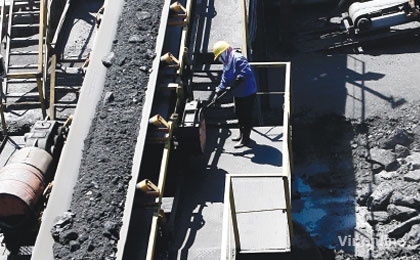Law means mining firms to strike dirt
 |
| Vietnam is guarding its resources with greater vigilance |
Last week, the National Assembly approved the revised Mineral Law, which replaced the one issued in 2005. It provides more stringent business performance conditions on mineral exploration licencing, mineral exploitation rights auctions and transfers of mineral exploration and exploitation rights.
The law stipulates that mineral explorers, who are allowed to obtain a maximum of five licences for mineral exploration, are required to have trained technical officers and workers in exploration geology, hydrogeology-engineering geology, geophysics, boring, excavation and other relevant expertise. They are also required to have specialised equipment and tools for the implementation of mineral exploration works.
Particularly, they must “have owner’s equity equal to at least 50 per cent of the total investment capital to implement the mineral exploration project”.
National Assembly vice chairman Nguyen Duc Kien said that under the law, mineral exploistation rights must be put up to auctions to ensure transparency and increased revenues for the state coffers, and to remove the existing “ask-give” mechanism, which implied negative connotations.
“The government will prescribe principles, conditions and procedures for mineral exploitation rights,” Kien said.
The law also stated that exploiters were required to have appropriate equipment and labour with environmental impact assessment covenants approved by relevant authorities.
Particularly, exploiters were required to present owner’s equity equal to at least 30 per cent of the total investment capital to implement the mining project.
A mineral exploitation licence will last 30 years and can be extended many times. The total time for extension will be 20 years.
Many National Assembly deputies argued that the requirements on owner’ equity of 50 and 30 per cent of the total investment capital to implement the exploration and exploitation projects, respectively, were to exclude financially incapable companies. However, it remained unknown how an owner’s equity could be verified.
The law also allows the transfer of mineral exploration and exploitation rights, so that it could agree with the investment and enterprise laws. The Investment Law stipulates that investors have the right to transfer and revise their project’s investment capital and the government stipulates the conditions for transferring and revising capital.
However, Kien said that to limit the trading of such licences, the transfer of exploitation and exploration rights must be considered and approved by competent licensing agencies, and the transferee would be responsible for applying for a new exploration licences which would supersede the previous one.
Particularly, it was a new concept that only mining projects obtained under the auction process would be transferable, Kien said.
Minister of Natural Resources and Environment (MoNRE) Pham Khoi Nguyen said the new regulations were crucial to the mining sector to effectively manage Vietnam’s mineral sources.
According to the National Assembly’s Law Committee, the government’s decentralisation of licencing exploration and exploitation project management had encouraged localities to grant thousands of licences without appraising the quality of the miners.
Many miners have reportedly been given exploration and exploitation licences after they had simply completed the necessary investment procedures.
According to the MoNRE, mining now comprised 7 per cent of Vietnam’s gross domestic product, while it was 20-30 per cent in many countries rich in minerals like Vietnam. The MoNRE said there were 1,500 firms engaged in mining, which owned over 4,500 mining projects nationwide.
What the stars mean:
★ Poor ★ ★ Promising ★★★ Good ★★★★ Very good ★★★★★ Exceptional
 Tag:
Tag:
Related Contents
Latest News
More News
- Hermes joins Long Thanh cargo terminal development (February 04, 2026 | 15:59)
- SCG enhances production and distribution in Vietnam (February 04, 2026 | 08:00)
- UNIVACCO strengthens Asia expansion with Vietnam facility (February 03, 2026 | 08:00)
- Cai Mep Ha Port project wins approval with $1.95bn investment (February 02, 2026 | 16:17)
- Repositioning Vietnam in Asia’s manufacturing race (February 02, 2026 | 16:00)
- Manufacturing growth remains solid in early 2026 (February 02, 2026 | 15:28)
- Navigating venture capital trends across the continent (February 02, 2026 | 14:00)
- Motivations to achieve high growth (February 02, 2026 | 11:00)
- Capacity and regulations among British areas of expertise in IFCs (February 02, 2026 | 09:09)
- Transition underway in German investment across Vietnam (February 02, 2026 | 08:00)






















 Mobile Version
Mobile Version